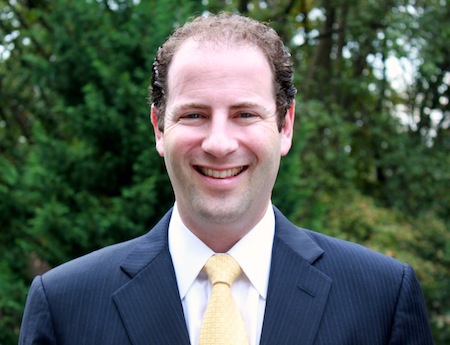Kaplan to Wheeler: Any Auction Delay Is on FCC

The smarter way to stay on top of broadcasting and cable industry. Sign up below
You are now subscribed
Your newsletter sign-up was successful
National Association of Broadcasters executive VP of strategic planning Rick Kaplan took aim at FCC Chairman Tom Wheeler in a blog post Wednesday following Wheeler's comments at the CTIA show in Las Vegas suggesting NAB was throwing up roadblocks to a successful auction and its complaint is groundless.
Kaplan was referring to a suit filed by NAB against a portion of the auction.
Kaplan pulled no punches. He said the chairman was wrong and that it was trying to get a court decision ASAP given the mid-2015 target for the incentive auction.
But he also said that if NAB does win the court fight and the auction has to be rethought, any delay was on the FCC for creating that problem. "[I]f the FCC insists on seeing the litigation through and loses, then it has no one else to blame but itself. Don’t pin that on us," says Kaplan
"NAB did not file a petition for reconsideration first, as T-Mobile and Sprint did, which would have given us another layer of process behind which to hide if we really were aiming for delay," Kaplan wrote. We did not wait until the last minute in the 60-day period during which legal challenges could be filed; we filed on day one. And we affirmatively sought and were granted expedited review of our lawsuit."
Kaplan said it was easier for the chairman to blame broadcasters rather than look at "misguided policy decisions," a net neutrality decision that has scared mobile carriers and other potential causes closer to home.
Kaplan said he still thought the auction could be a success, but called for less finger-pointing and time-wasting and said one way the auction could be improved was if broadcasters had a "partner" at the helm of the FCC.
The smarter way to stay on top of broadcasting and cable industry. Sign up below
NAB sued the FCC last month over the way it plans to calculate TV station coverage areas and potential interference after TV stations are repacked into smaller spectrum quarters after the incentive auction.
NAB says the FCC plan could result in significant viewership loss and that the FCC changed the methodology in contravention of the statute. The FCC said it updated the data to make it more accurate, but did not change the basic methodology.
Contributing editor John Eggerton has been an editor and/or writer on media regulation, legislation and policy for over four decades, including covering the FCC, FTC, Congress, the major media trade associations, and the federal courts. In addition to Multichannel News and Broadcasting + Cable, his work has appeared in Radio World, TV Technology, TV Fax, This Week in Consumer Electronics, Variety and the Encyclopedia Britannica.

